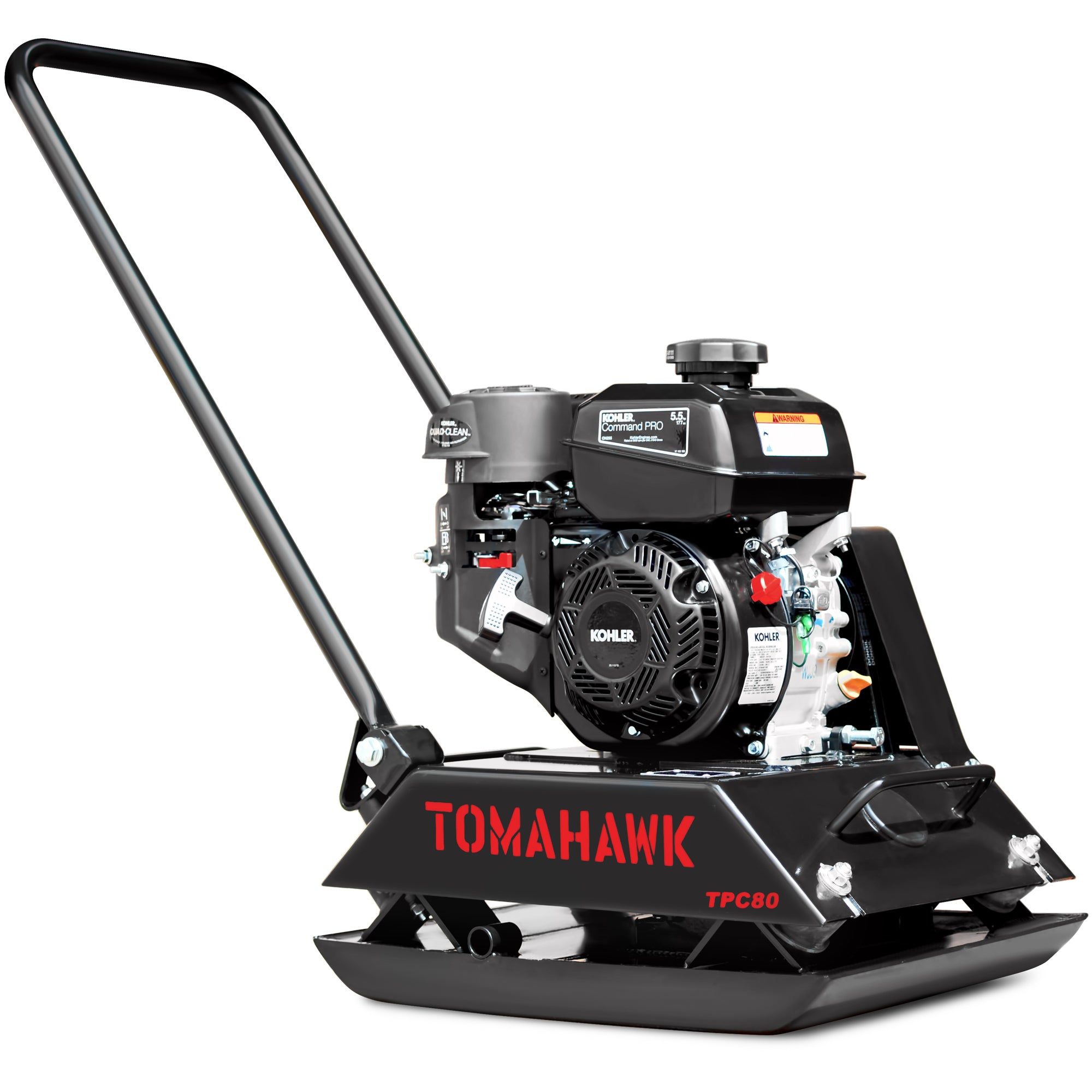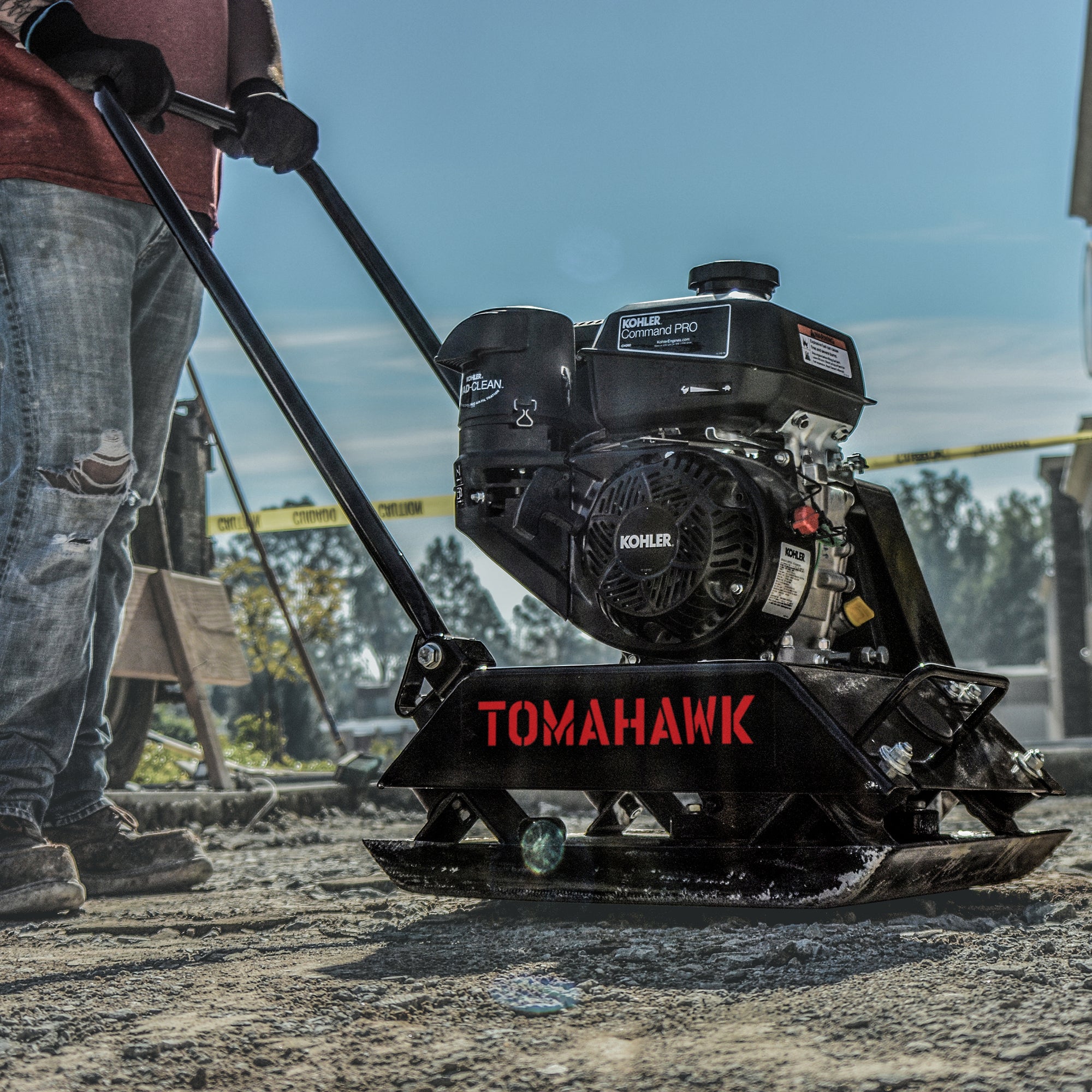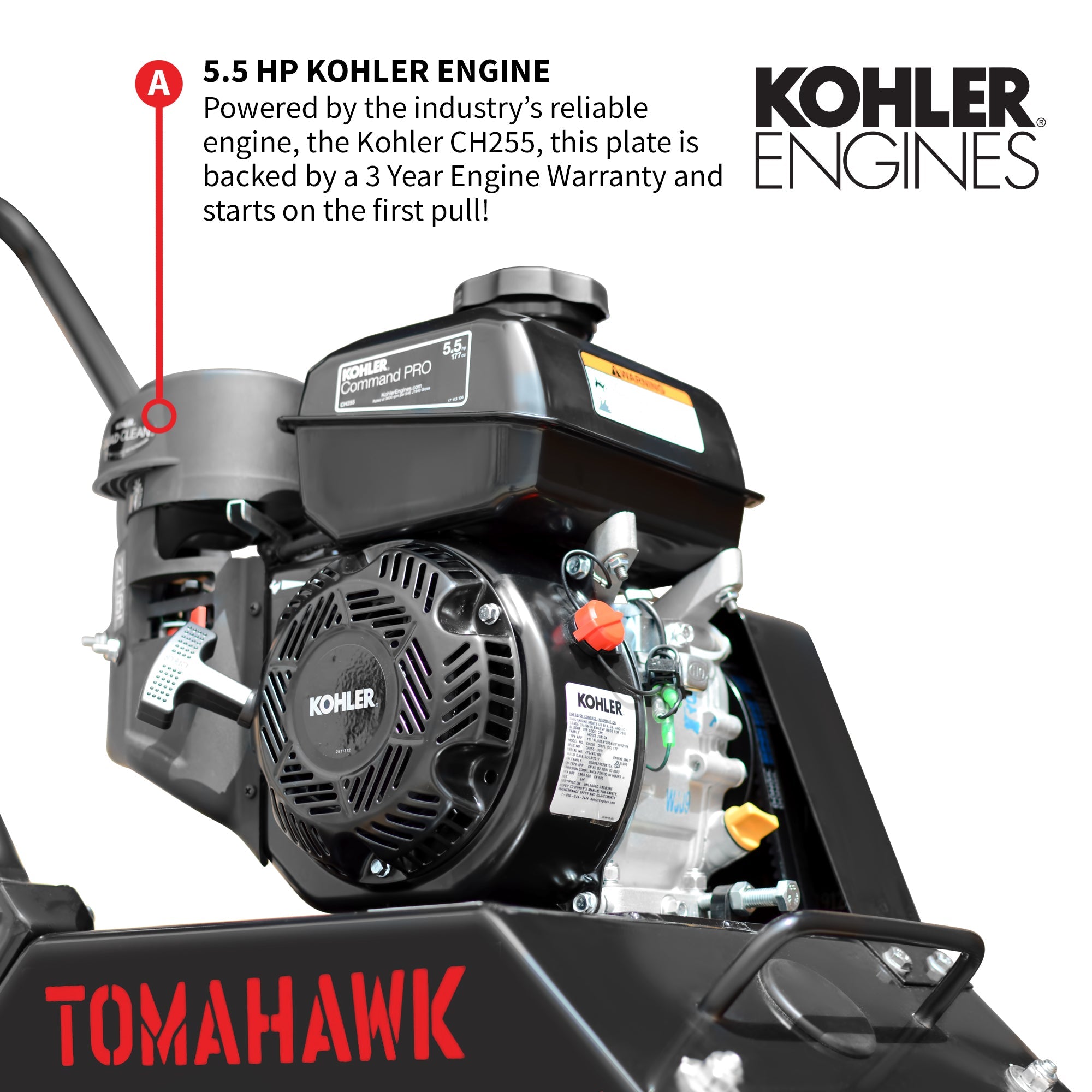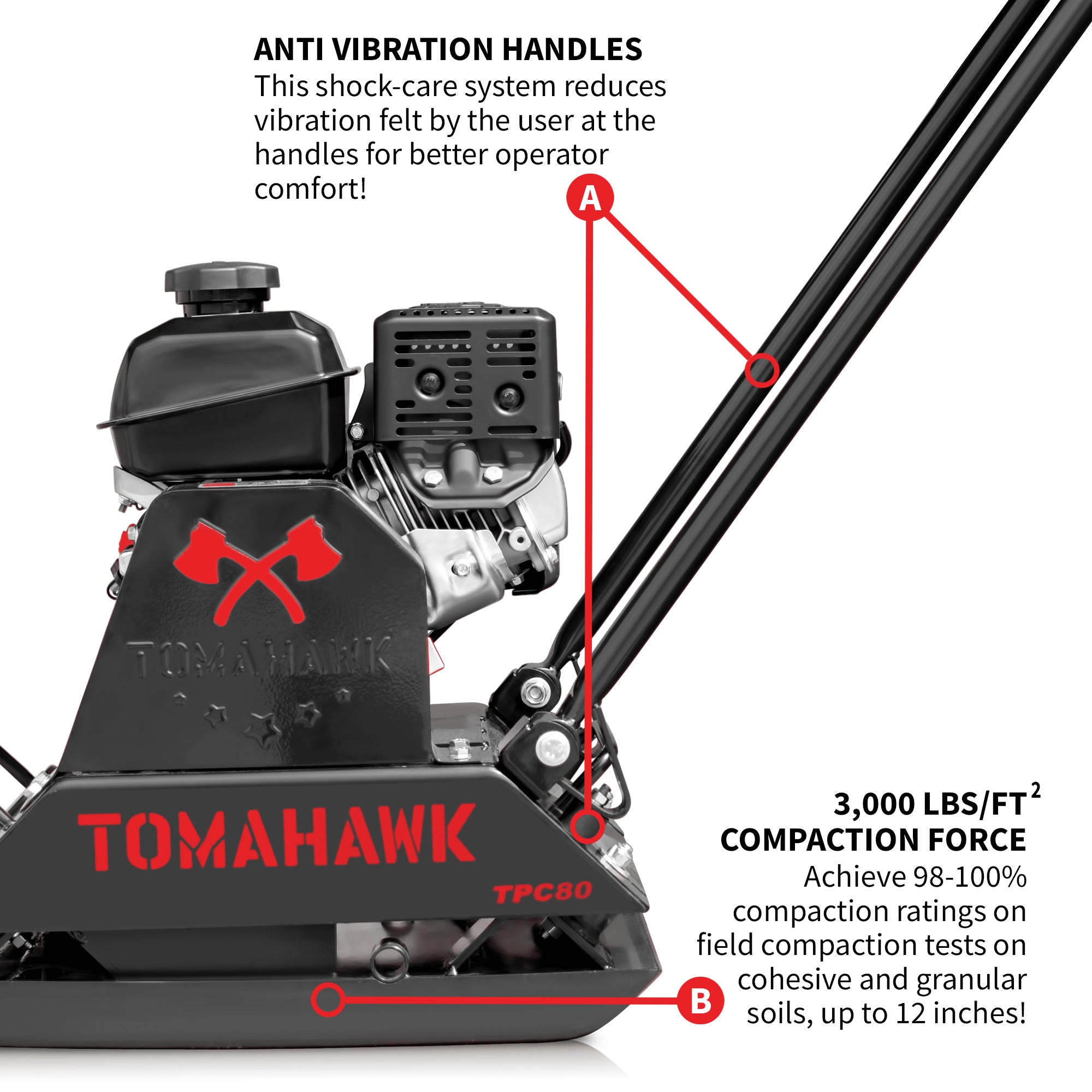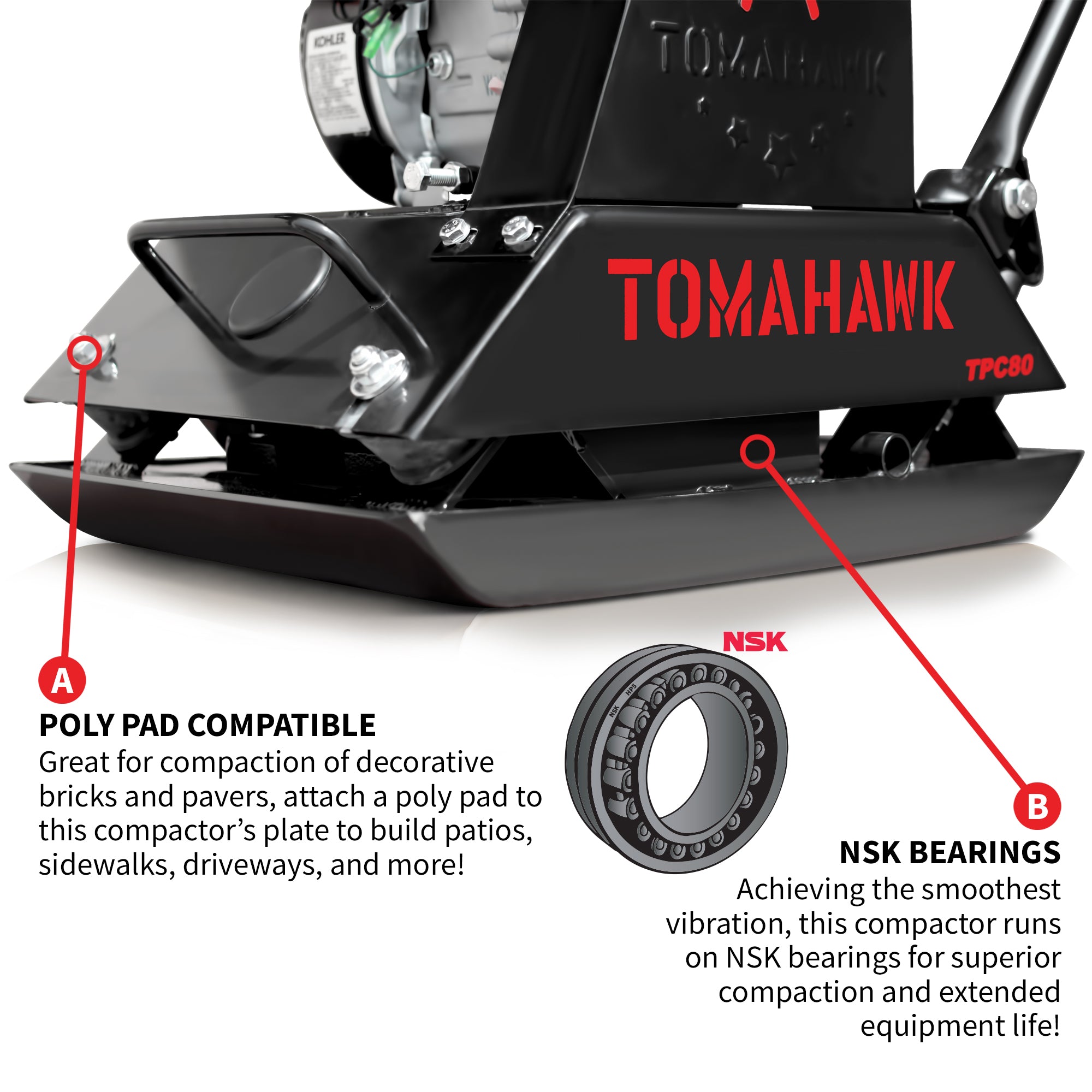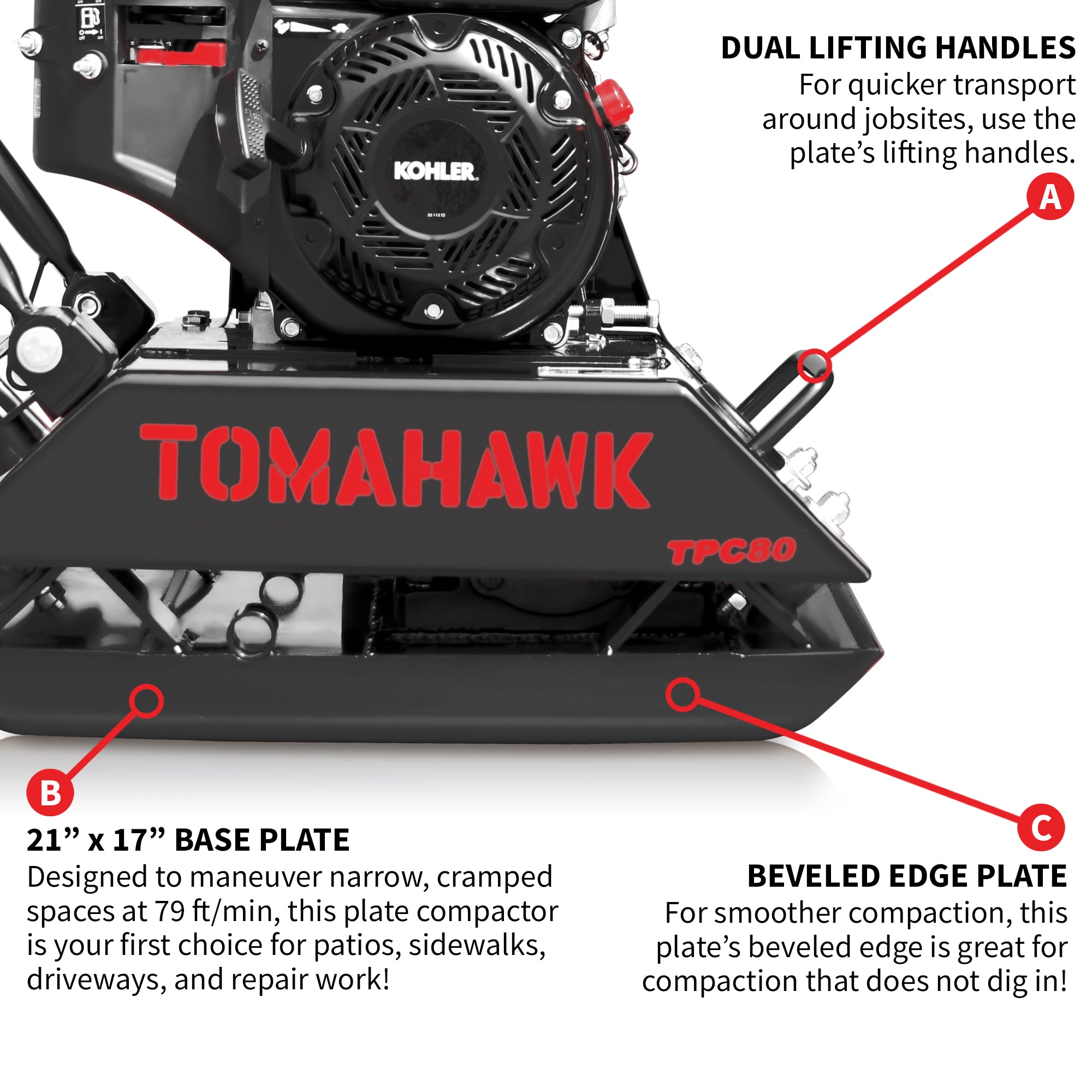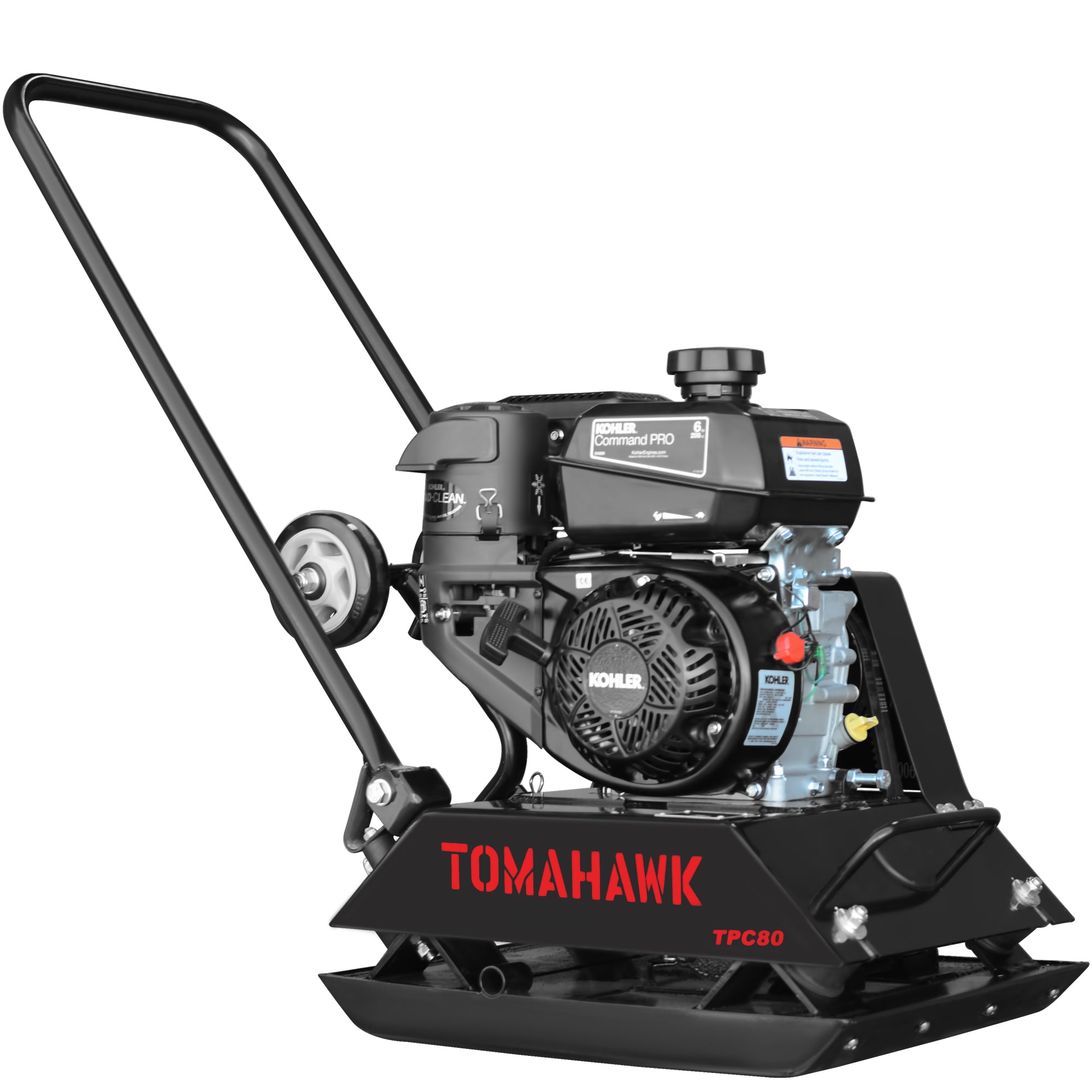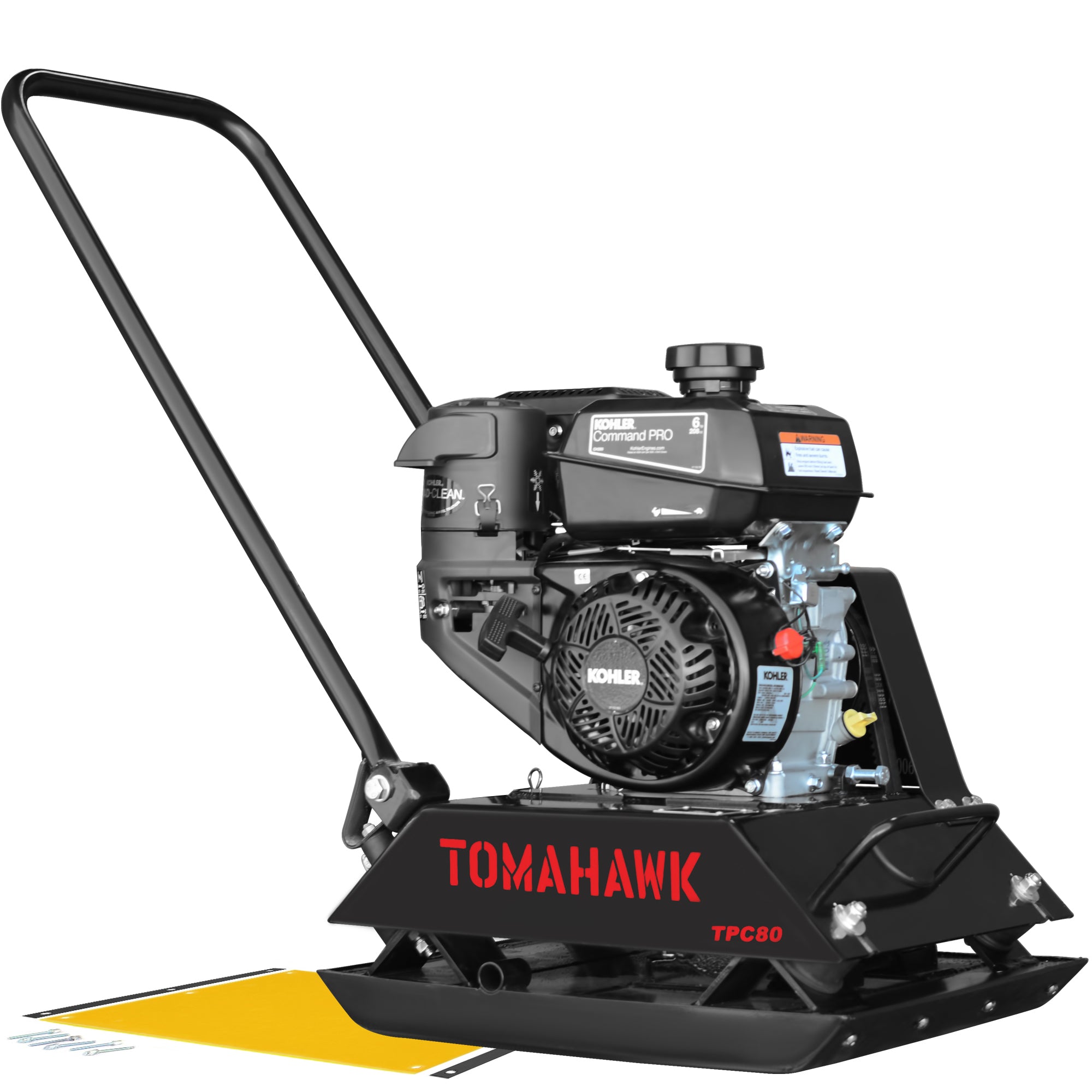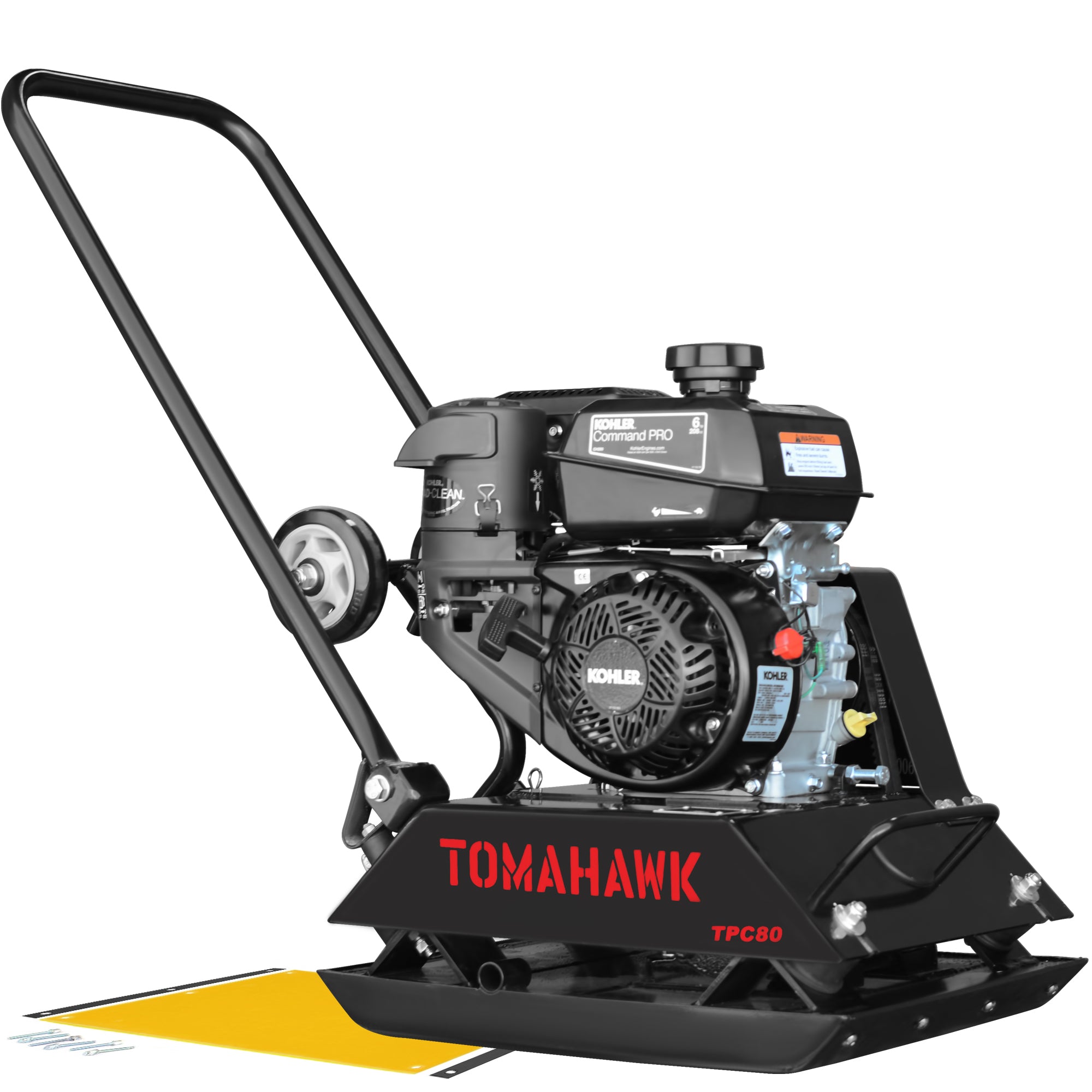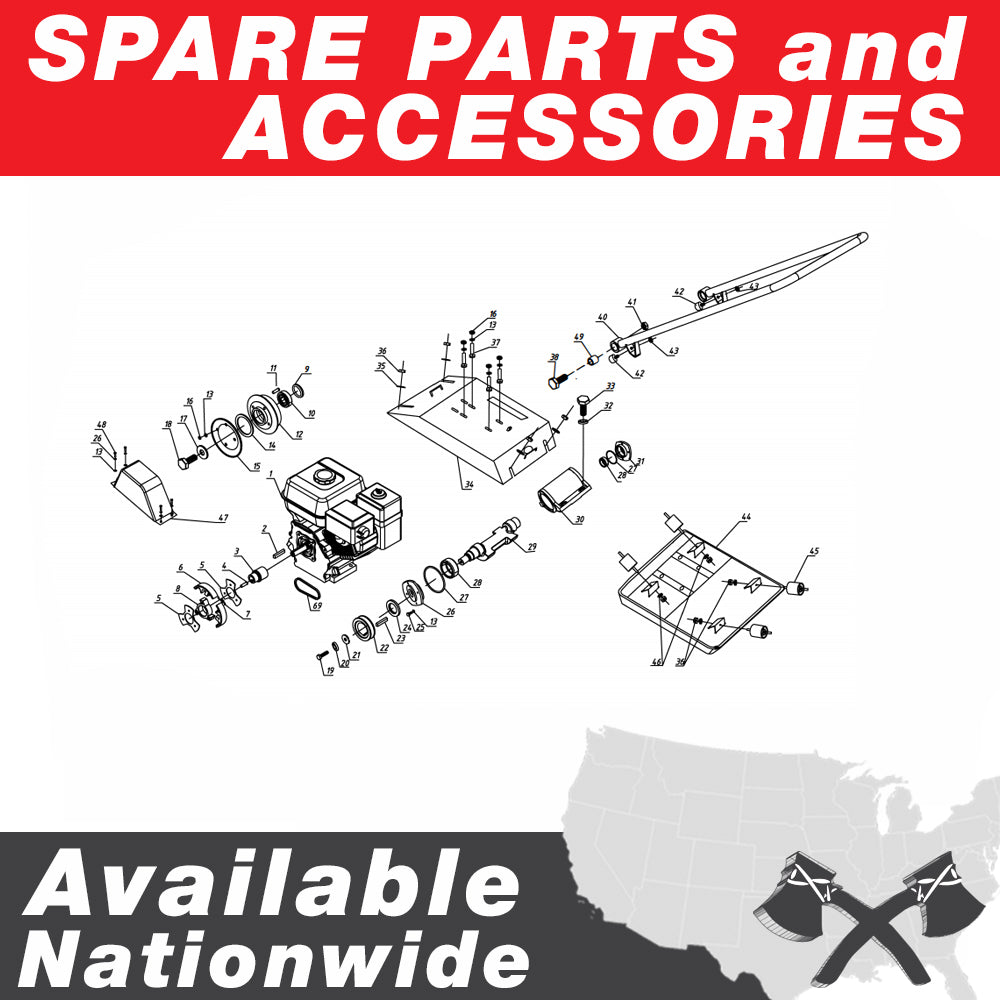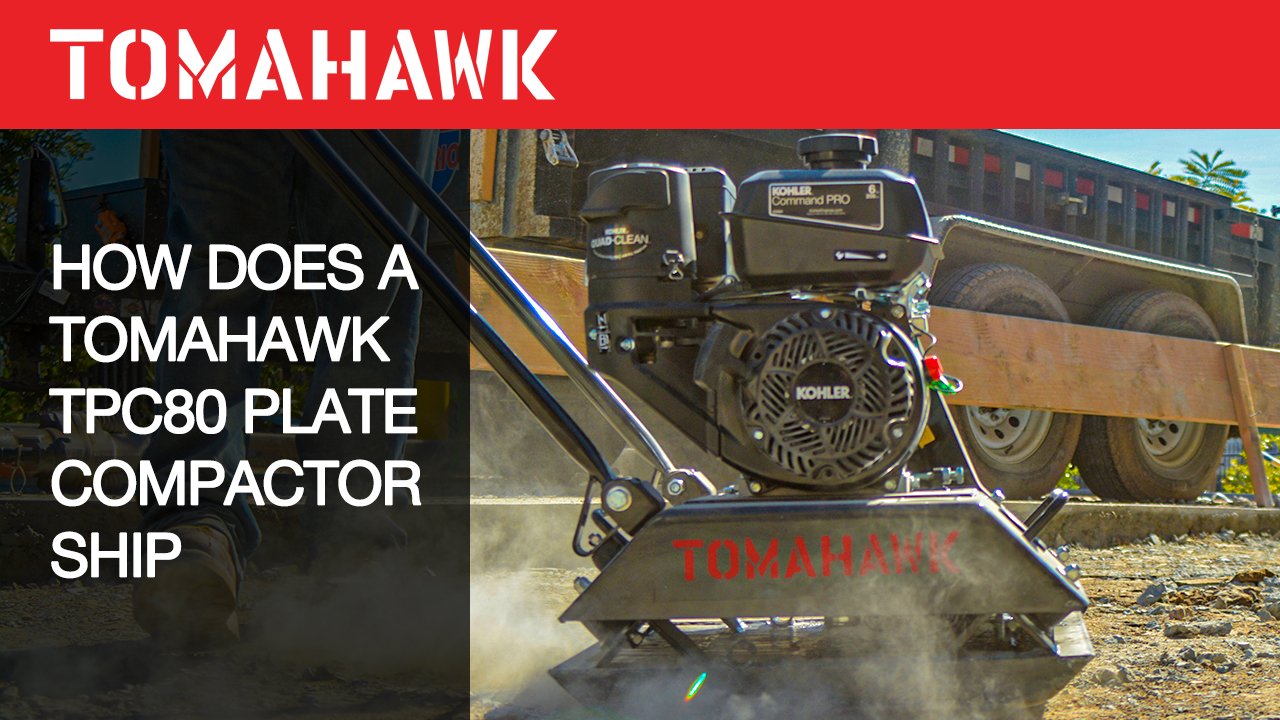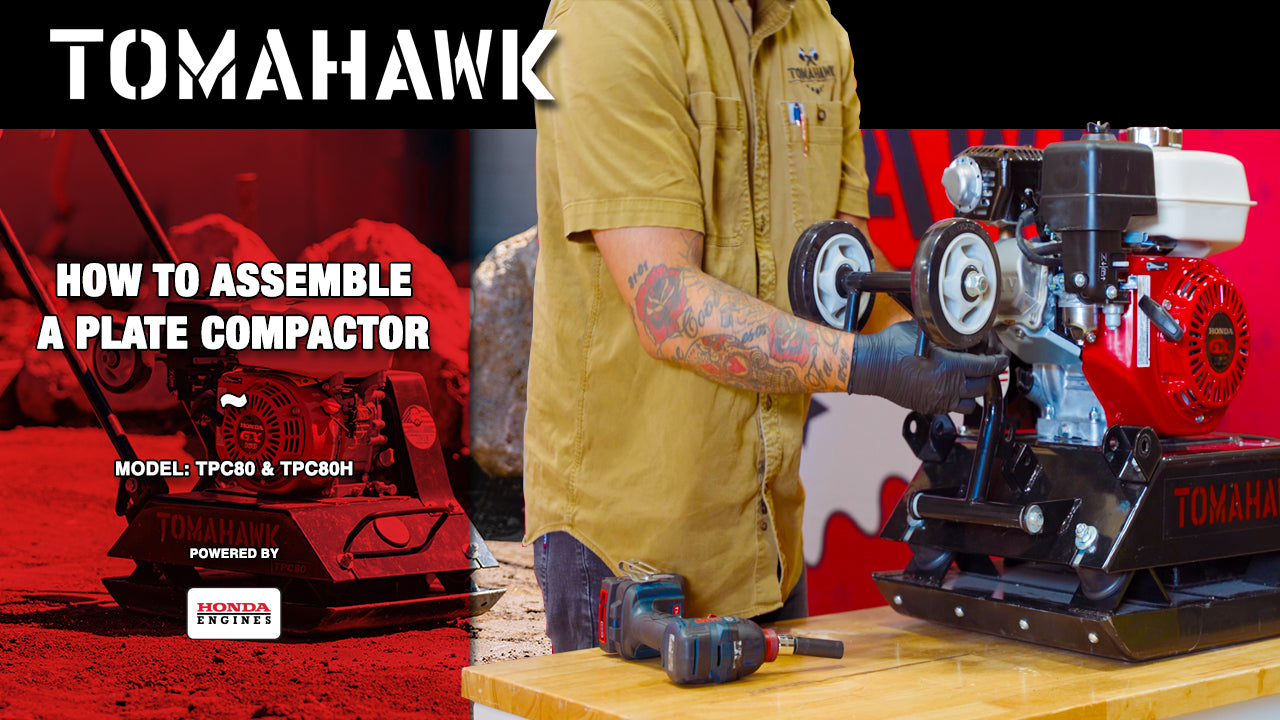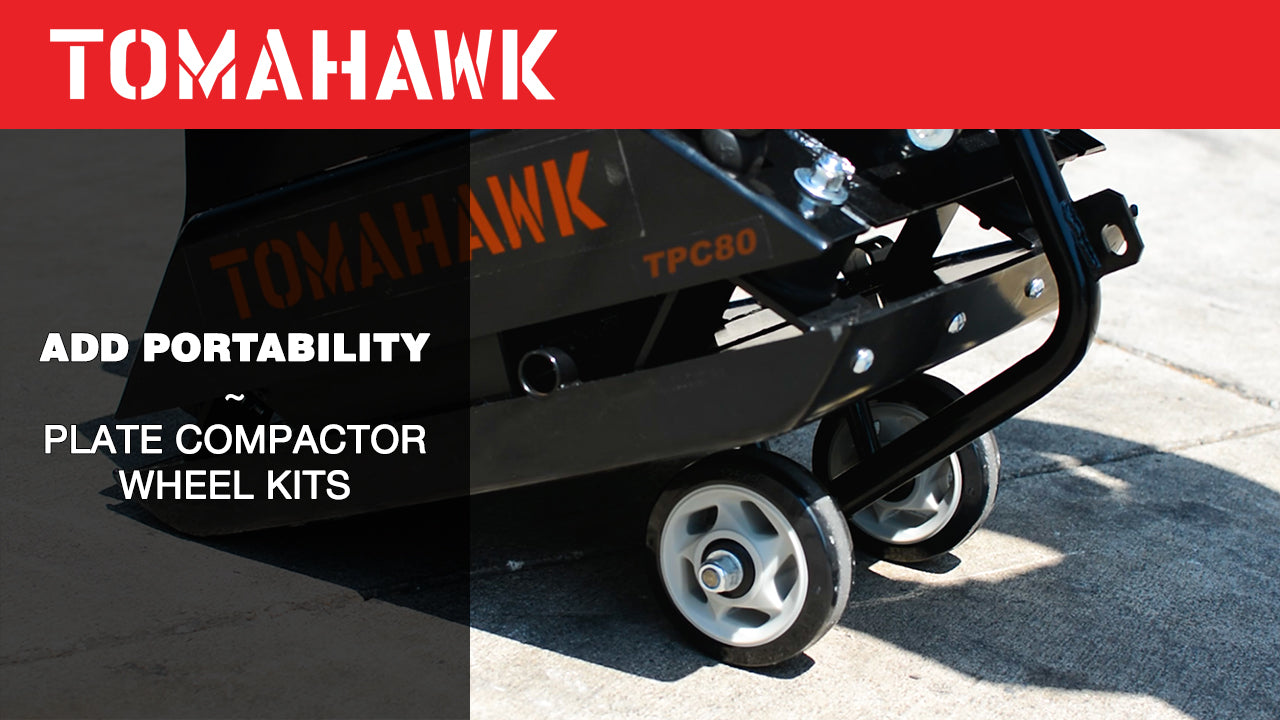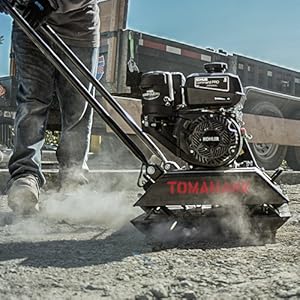Description
Estimate shipping
QUESTIONS & ANSWERS
Ask a Question-
What kind of gasoline and oil does the plate compactor take?
Tomahawk Plate Compactors run on 4 Stroke SAE 10W-30 oil and 89 octane gasoline.
-
What is the RPM on the TPC80 engine?
The Kohler CH260 engine has a certified RPM of 4000.
-
What is the engine on the TPC80 plate compactor?
The engine on the TPC80 plate compactor is a 6HP Kohler CH260 engine.
-
Do you sell paver poly pads for the TPC80 plate compactor?
Poly pads for brick pavers are not available for the TPC80 model plate compactor. Our TPC90H plate compactor is compatible with poly pads for paver compaction.
-
Where are Tomahawk Plate Compactors Made?
Our plate compactor parts are sourced globally in the United States, Czech Republic, Japan, and China with assembly completed overseas, except for our TPC80H model, which is assembled in the United States.
-
What options do I need for my plate compactor?
Options to consider when researching plate compactor
Wheel kits for easy maneuverability Lifting bars are excellent for lifting heavy plate compactors into a truck Water tanks are crucial for using plate compactors on asphalt and edging Poly-urethane pads are always important for compacting bricks and developing hardscapes -
What kind of soil can I use my plate compactor for?
Typically plate compactors can be used for aggregate soils (gravel, pea gravel, sand, and stones). In other cases you can use plate compactors for cohesive soils, but a vibratory rammer or jumping jack, such as the Tomahawk TR68H, is best suited for this.
-
What size plate compactor do I need?
The size of plate compactor needed may vary depending on what you are looking to compact. If you need heavy compaction, Tomahawk recommends a large reverse plate compactor, preferably 300lbs plus. If it is a small job we recommend our TPC80 forward plate compactor. Before purchasing a plate compactor, definitely consider how often you will be utilizing it.
-
My plate compactor engine starts but does not compact?
The most common reason for this is the exciter box on the plate compactor is typically not functioning or it is broken. Bring the plate compactor to a service center and change the exciter box. Email service@tomahawk-power.com for more information or find an explosion diagram in our Manuals Page and locate the part.
-
My plate compactor engine will not start. How do I fix this?
Many engines such as Honda, Subaru, Tomahawk, and Kohler have low oil sensors. To protect your engine from damaging itself without oil, the low oil sensor will disable the engines from starting until a suitable amount of oil is added. Other features on the engine to check might be:
Is the spark plug working? Has the fuel gone bad? Have you changed the oil filter?
Some plate compactors now use Chinese engines which cannot handle the high frequency of vibration and break very quickly. It is worthwhile investing in a plate compactor with a proper compression ratio, torque, and durability, typical of American or Japanese small engines. -
What do I need to do before compacting?
Make sure you have the correct moisture and soil you intend to compact. Typically when compacting you only want to make a few passes so thinking this through will help you a lot. Soil Drop Test: Soil preparedness refers to the “wetness” of the dirt or soil. Soil needs to be 50% dry and 50% wet, before starting compaction. A simple “hand test” can determine this. Pick up a handful of soil with your hand and squeeze the dirt. Observe whether the soil is powdery or if it breaks apart when dropped. If the soil does break apart, it means that it is too dry. If the soil keeps together in one piece when dropped, it is ready for compaction. Soil Testing: Testing: The function of this step is to measure the density of an aggregate material to ensure the increase of density when driving out air. At a low moisture content level, there are more soil particles assembling together. In order to determine if the soil is compacted properly, there are several methods. Test strips are useful to determine the method of compaction and understand how many passes of your plate compactor are needed to achieve the optimum compaction. Every layer of compacted soil meets a specific percentage on the proctor curve. Through soil testing, it is possible to identify optimum moisture. Soil testing measures the soil density compared to the degree of compaction specifications, as well as the effect of the moisture.
-
How do I start my plate compactor?
To start a plate compactor engine add the recommended amount oil (10W-30) and fuel, preferably above 87 octane. Make sure the fuel valve is open and the choke is closed. Then give the recoil starter several pulls until the engine starts. Once started, move the choke to the open position and begin compacting.
-
Does the engine have a horizontal or vertical shaft?
The engine on the TPC80 plate compactor has a horizontal shaft.
-
Can this plate compactor be used for artificial turf?
This plate compactor can be used to prepare the base for artificial turf.
-
Where is the serial number located?
The serial number of your TPC80 plate compactor can be found on the name plate on the base of the plate compactor.
-
Where can I get replacement parts?
Replacement parts for the Kohler engine can be found through any Kohler Dealer worldwide. Compactor parts can be found through Tomahawk Power directly.
-
Can I use this for a 400ft sidewalk pour?
Yes, this plate compactor has a 17" plate width and travels at about 70ft per minute. It is ideal for granular soils and sidewalks.
-
What is the warranty on the Kohler engine?
The Kohler engine has a 3 Year Warranty.
Payment & Security
Your payment information is processed securely. We do not store credit card details nor have access to your credit card information.

